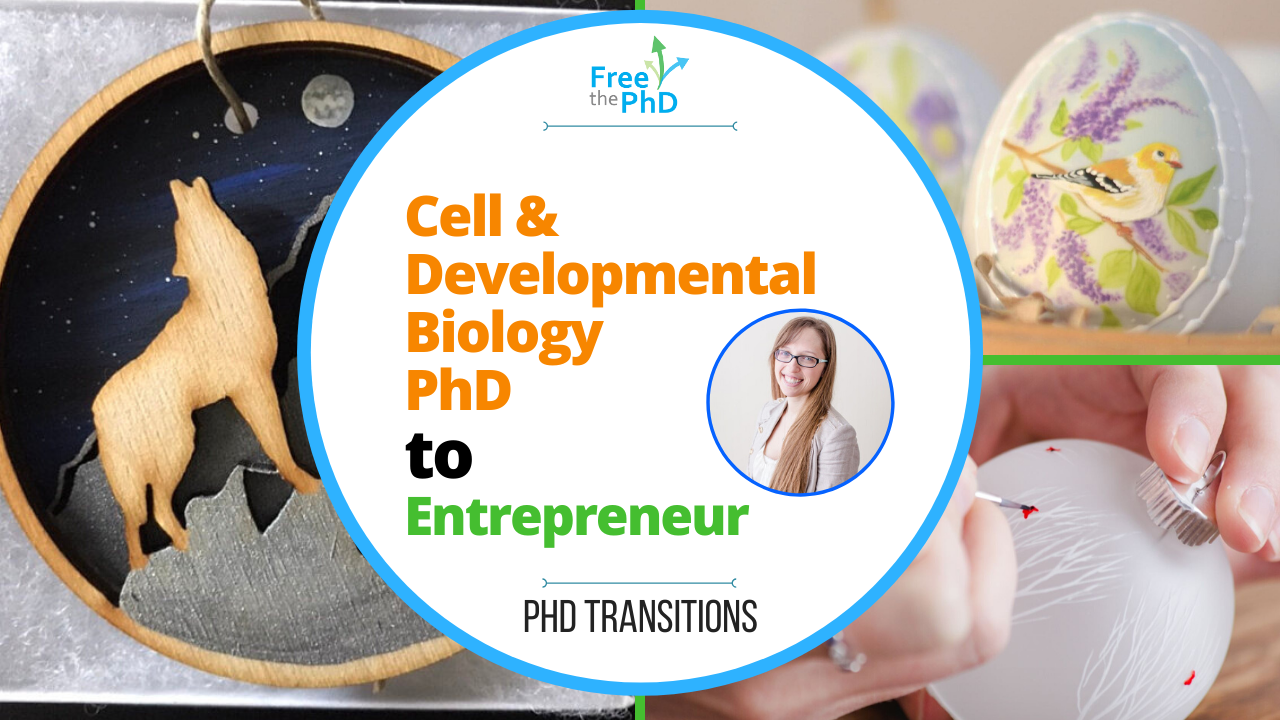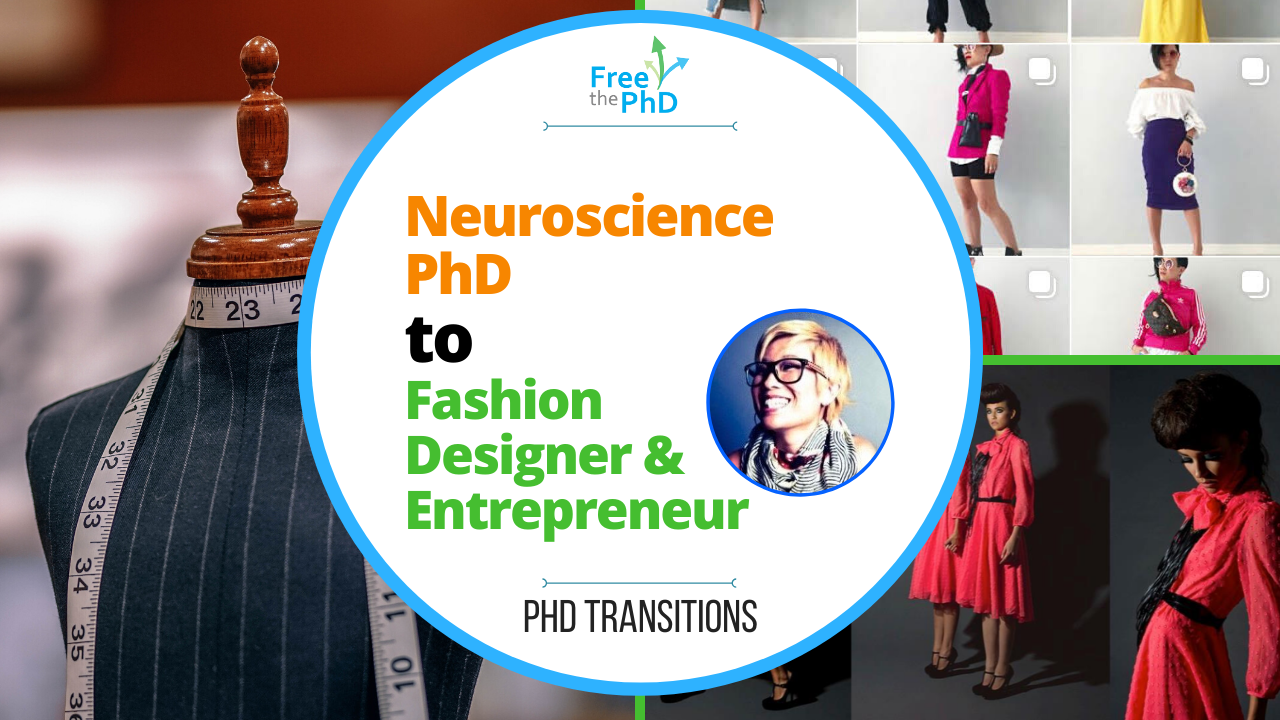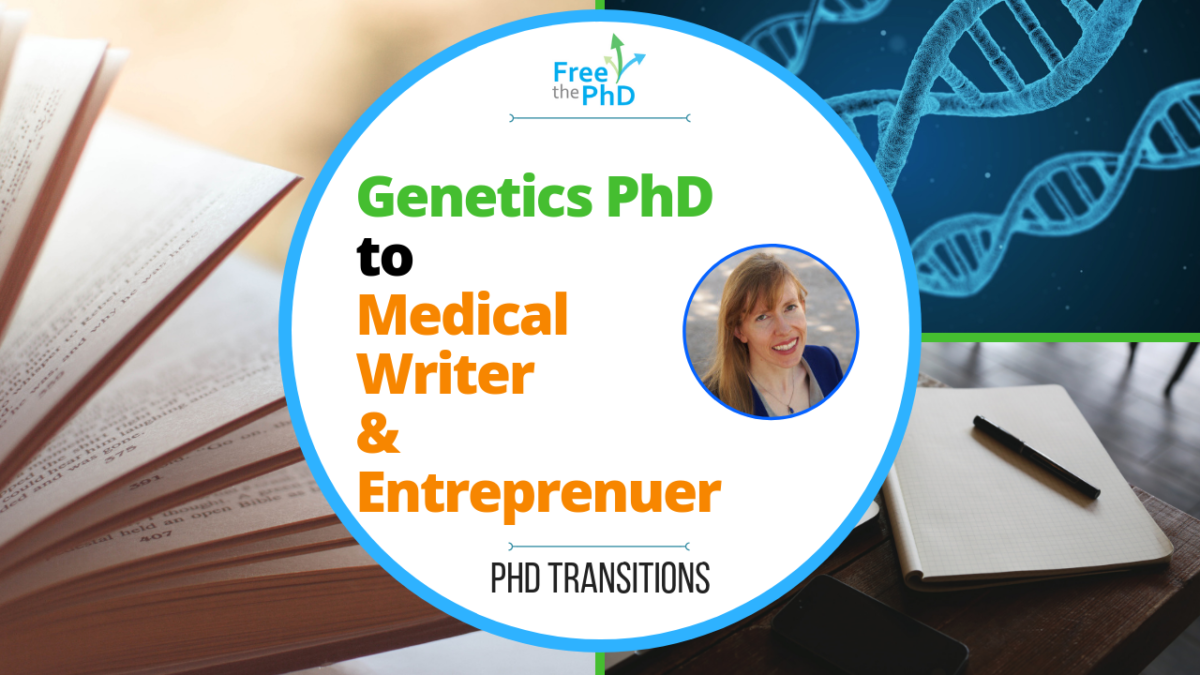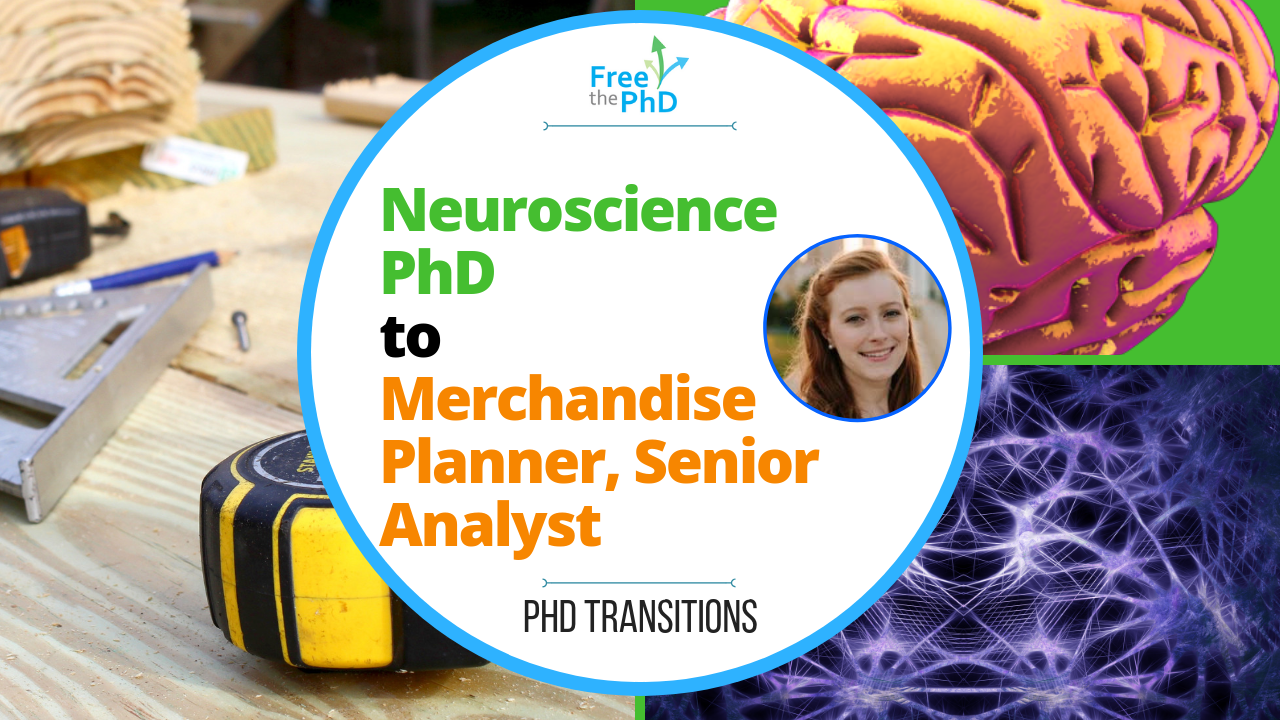What happens when the totally unexpected happens? How do you pick yourself up from a change in the world you didn’t see coming? In today’s challenging world, Dr. Stephanie Guzik Lendrum’s story of resilience and determination to take a risk and run with an idea is one we can and should take inspiration from. Let’s hear how she went from the bench into running her own business!
Tell us why you were interested in doing grad school/a postdoc?
I always knew I wanted to do research. From the time that I was a kid, I was intrigued by questions about how our world works. I got an early start with research experiences and loved the atmosphere of the lab. So when the time came to decide what to do beyond undergrad, there was never a doubt in my mind that I would go to grad school.
So what did you study in your graduate work?
I was lucky to find an amazing mentor in grad school who allowed me to really delve into a project that had unknown potential. It was a myosin motor protein that had been discovered 10 years before in a genome database, but no one had published anything about it. I took on that project unknowingly walking into a very complex task! As it turns out, I was documenting a myosin motor that had no motor properties, so the normal experiments that are used to characterize the biochemistry and biophysics of a motor protein were useless, and my advisor and I set about paving a new path to describe this unique, critical protein.
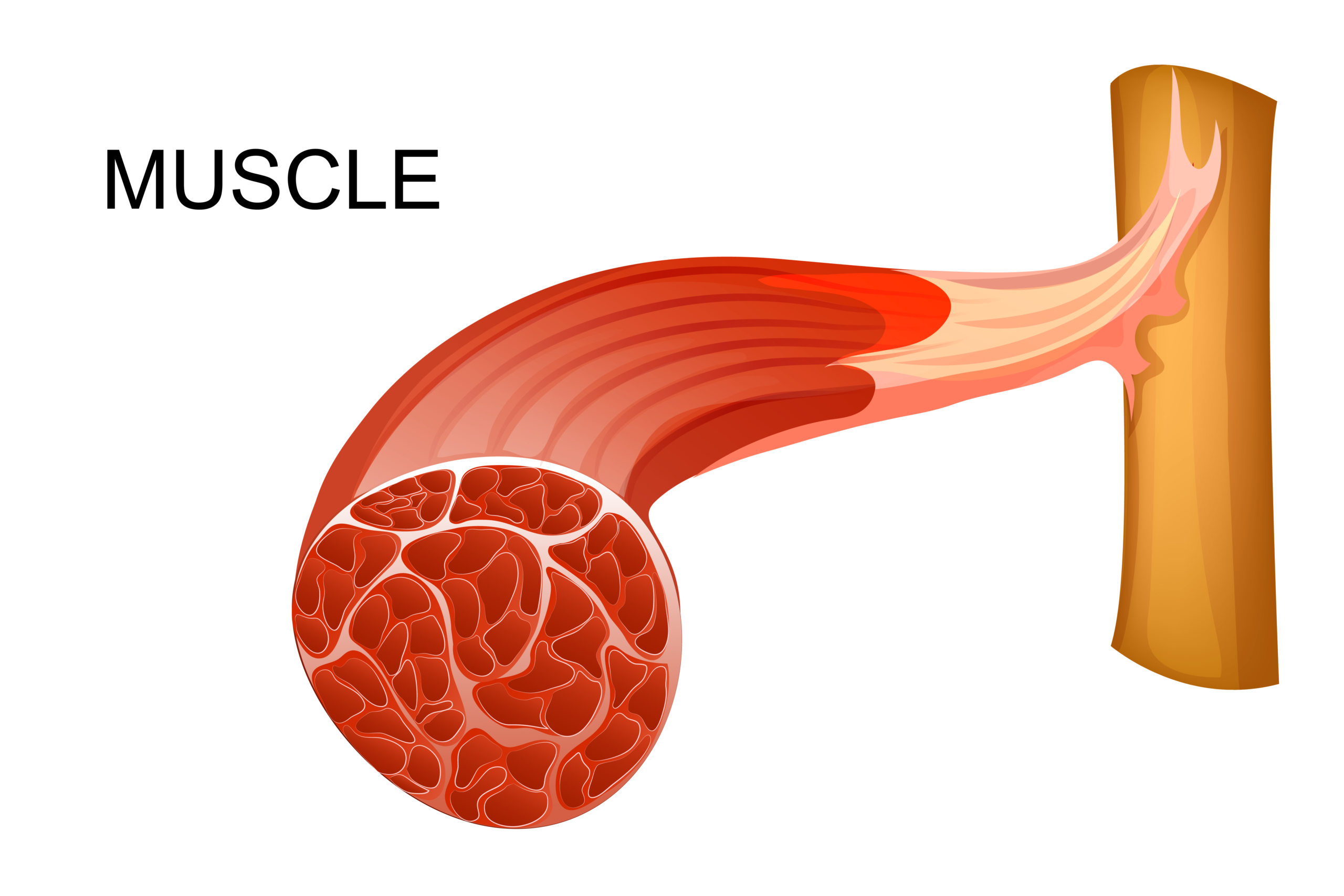
What came next? What were you considering for your options after graduation?
I had started to look into alternative careers during grad school, particularly science writing. I enjoyed the communication side of research more than most of my colleagues, so it seemed to be a logical path. I had even secured a position at a prestigious museum working as a science writer behind the scenes (Smithsonian National Museum of Natural History). But family considerations took the wheel and I ended up moving back to my hometown with my husband.
I reached out to several labs near our hometown, but found that many didn’t have openings for post-docs at the time. One did, however, and it was at my alma mater. I jumped in quickly, with a post-doc and a grad student both poised to leave within 6 months. I had to take over the roles and responsibilities of lab management very quickly.
I enjoyed the maintenance and management tasks that came with my job, but my favorite element was getting to train and guide students who spent time in our lab. We had several grad students and undergrads come through the lab during my 7 years working there. During that time I was promoted from post-doc to the equivalent of a staff scientist.
What was the catalyst for moving into entrepreneurship and what was the psychological experience like?
HA! The catalyst was the most ridiculous, unexpected shove out of academia one could imagine. A 13 year old -80 freezer died on a Saturday. It had shown signs of aging for quite some time but was still in good condition. It was on the radar to be replaced but the budget had to be taken into consideration – it died before we could replace it.
As the senior member of the lab, the blame was on me for not being aware of the impending doom (as if I could have predicted or prevented a 13 year old freezer that had no wifi alarm from dying on a day I wasn’t in the lab). I spent a few days resolving as much as I could, trying to piece together what could be salvaged, trying to find out if a building event could have spurred this disaster, trying to calm the upset students and be strong amongst the chaos. I tried to give everyone the confidence that we could build back up from this. But it wasn’t enough.
A few days after the meltdown, I realized I would never be able to release myself from the storm cloud of this event. Combined with several other events over the years that had made me question whether I should remain in that position, I made the decision that was best for me. I packed up 7 years worth of my belongings. I made sure my data binders were in order, I left notes for everything I left behind, and walked away from a career I never expected to leave.
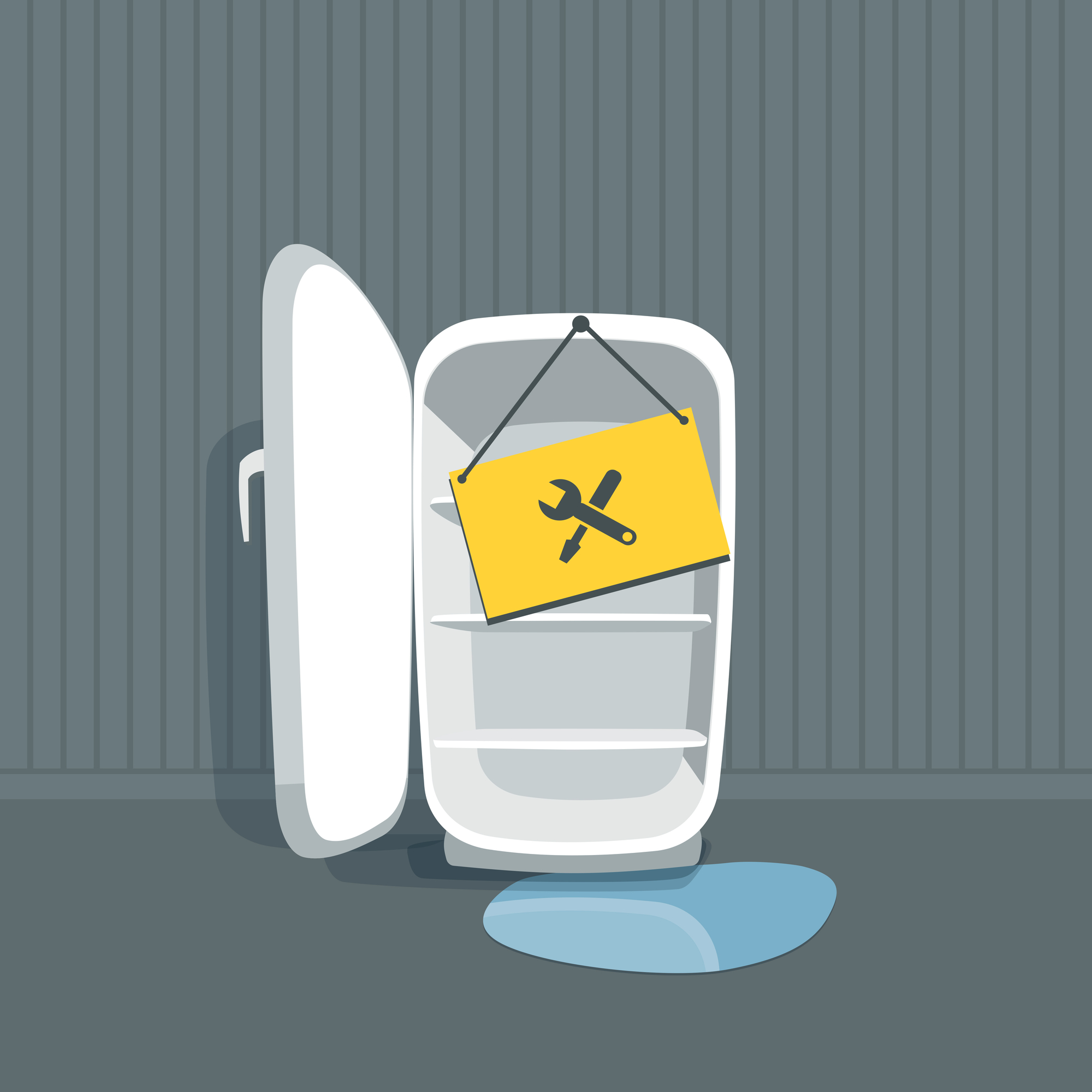
That’s a very unfortunate set of circumstances; I can’t imagine how I would have reacted if it had happened to me. We always had old equipment in the lab, being budget-conscious as most of academia tends to be, and any of it could have randomly died at any point! It must have been extremely stressful. Did you begin looking elsewhere for opportunities after you had a chance to catch your breath?
I spent the next few days digging through job postings, updating my CV, reaching out to everyone I knew for leads. But I was well aware that I wouldn’t be able to break away from the sphere of influence I had just left, and getting a job without a cloud hanging over me would be impossible. My family convinced me to spend a few weeks just taking time for myself. And during that time, I realized that I had a hobby that I might be able to capitalize on… just to get me through the interim between jobs.
What was that?
I had painted Christmas ornaments for gifts and events for several years, but I didn’t expect it to become a full time job. I had nothing to lose, and the support of friends and family to give it a try.
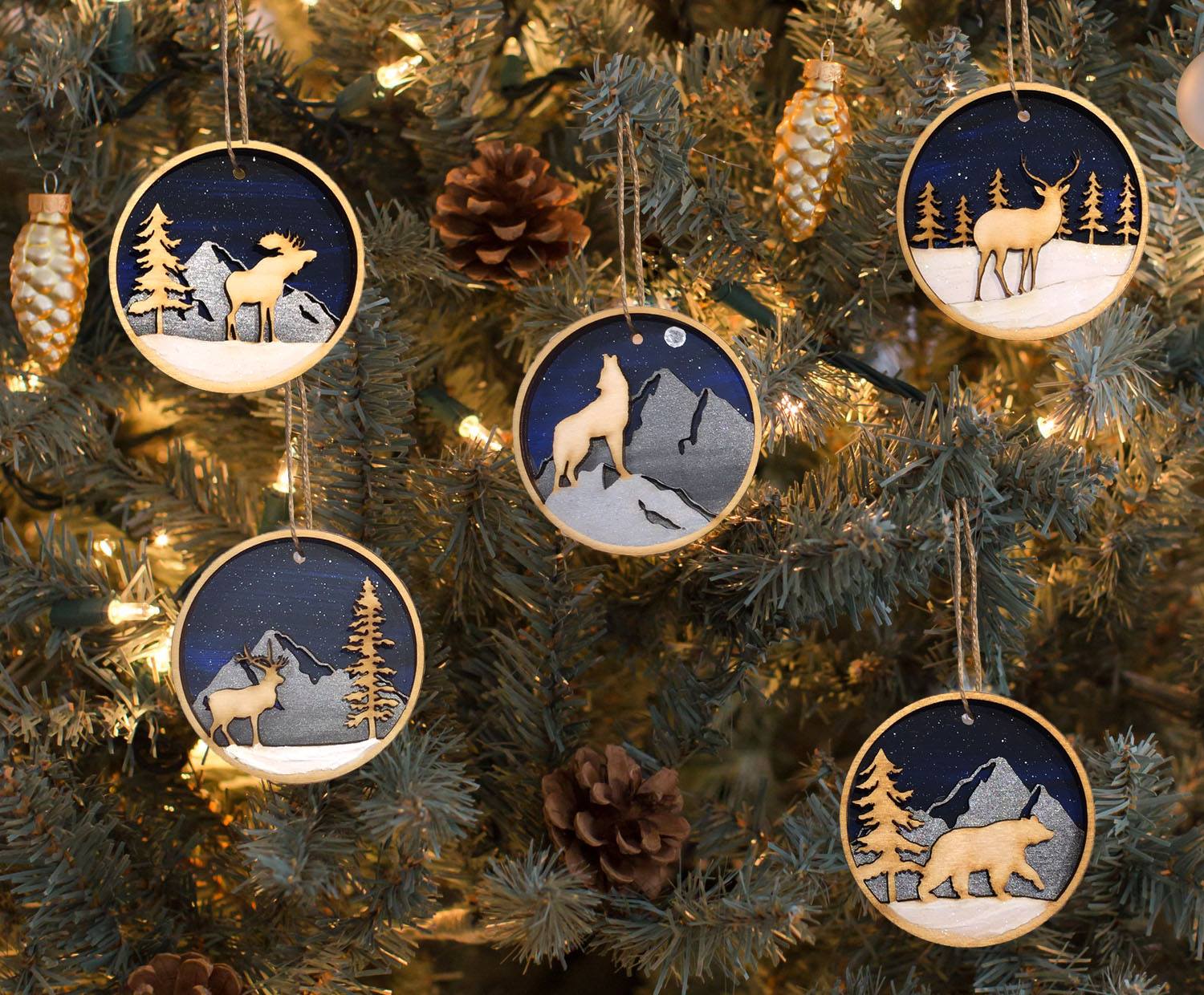
That’s such an exciting idea – how did you even know how to get started building up a new business for yourself?
Once I made the decision to try making a full business out of my ornaments, I decided to aim big. I reached out to the National Parks, with the mindset that I had nothing to lose from them saying “no.” But rather than no, they said yes, and I was catapulted into business a week after losing my job in the lab. I’ve spent this past year fully engrossed in my business. I’ve landed several business arrangements with shops across the country, I’ve sold thousands of ornaments around the world, and I’m building up for an even bigger year this year.
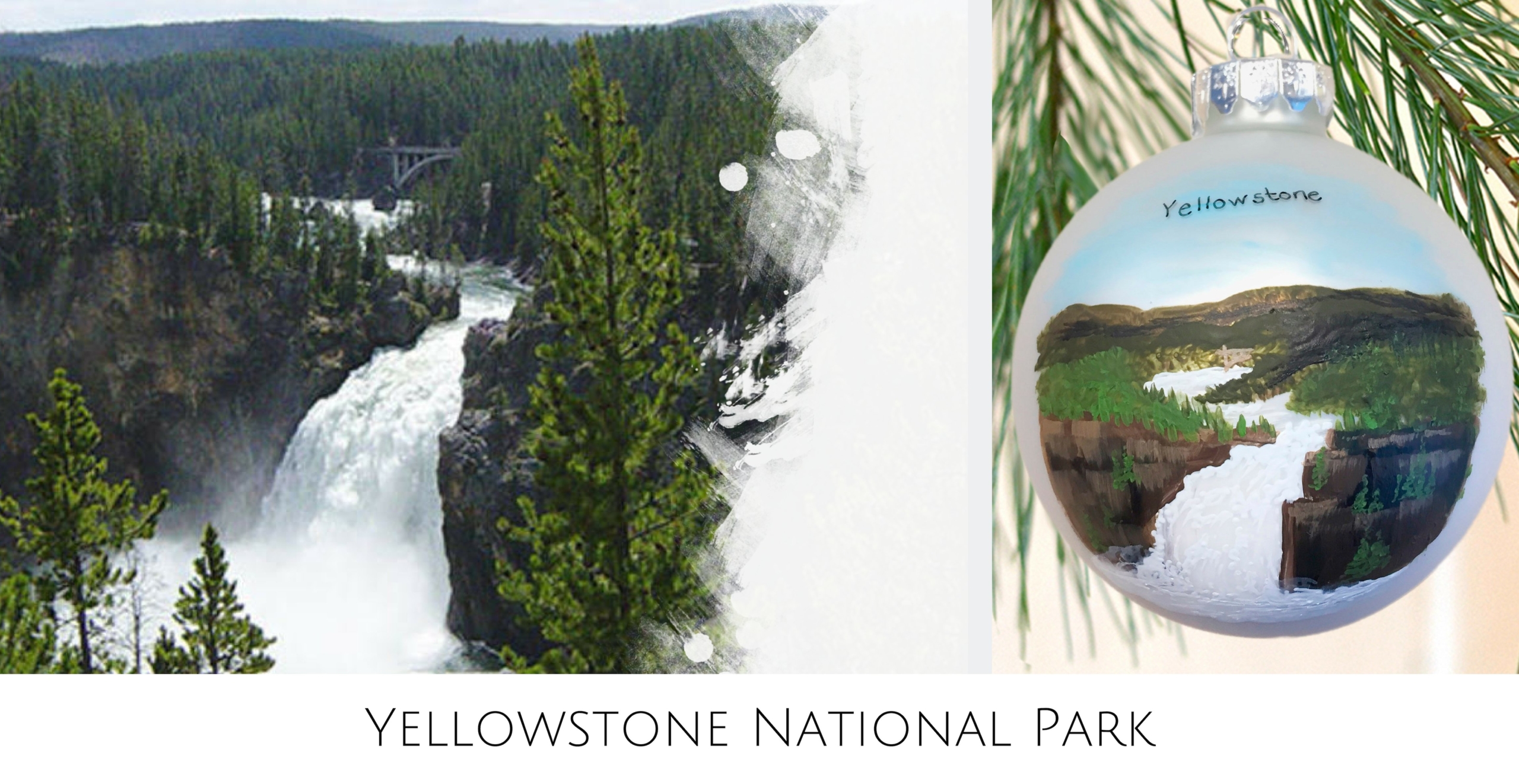
That’s so exciting to hear, and congrats on going all in! What has been the most enjoyable, and most challenging parts of the process so far?
I think the most enjoyable part of this journey has been the freedom to make my own schedule. No more commuting, no more meetings on Friday afternoons, no more hustling to get dinner ready before bedtime, no more data analysis on the couch at 10pm to meet a deadline, no more missing my kids’ events at school or dance classes. Looking back, I missed out on so many things because I was working my tail off for a job. Now, I make my own timeline. I make my own hours. I can take time off for family vacations. I can drink coffee at my workbench!
But it does come with challenges. I wear every hat in my business: designing, production, marketing, web developer, photographer, shipping department… that’s all me. There’s a steep learning curve that comes with some of those things. And yet, I feel like my time in the lab prepared me for all of it. Balancing tasks, time management, resource management, communication… those are transferable skills, even if your move away from the bench lands you in an art studio.
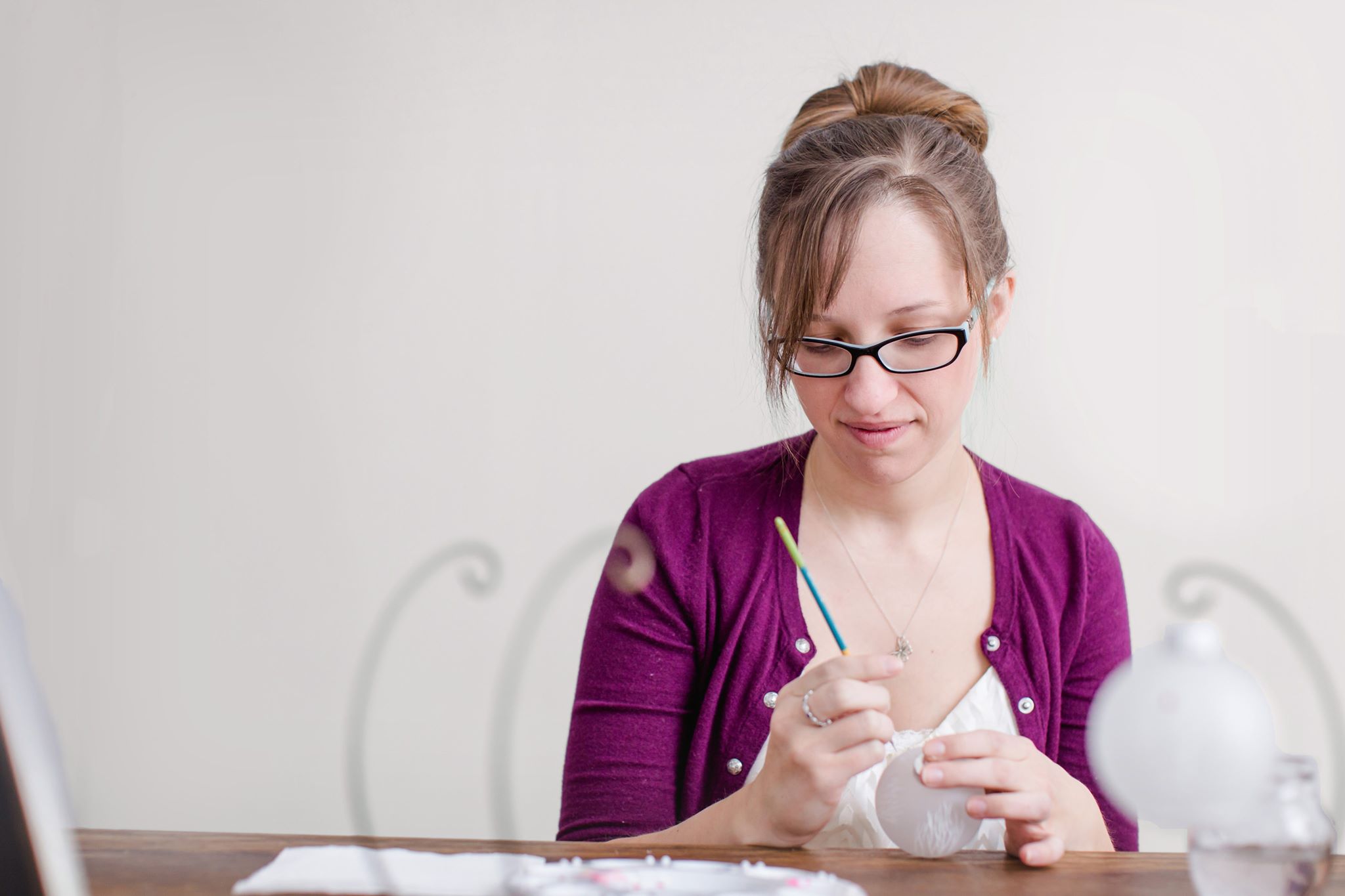
What advice or misconceptions about working outside of academia would you like to provide someone who has yet to make the leap outside?
First off, I’m proof that your career path can be taken away in a moment… from something as simple as the death of an old freezer. In all honesty, I was never planning to leave the lab. It was a safe space, one that I knew and loved. But if I could go back and tell my former self one thing, it’s that you are just as smart if you walk away and do something else. You do not need to feel obligated to cling to a career path because you spent so many years in school for it. Your identity is not defined solely as a “scientist,” and when you finally decide to make a change, you will still be a scientist at heart. In fact, I’ve met SO many former scientists in the maker community! It seems like it’s a thing… scientist-turned-artist. We need a support group.
As a fellow artist and ex-academic, I totally agree! Many researchers have other talents and hobbies, and unleashing our research-informed passions into society will only make it better. So what makes you excited about the coming year?
I am so excited to keep building my business this year. I’m expanding my product line and have so many ideas on where to take it. My National Park relationship is growing and I’m hopeful that I’ll have my ornaments in more stores around the country this year. COVID-19 has certainly changed the trajectory for my year, but I still have a business and I’m still making connections. If I had been in the lab, I would have likely been furloughed during this time.
What kinds of roles do you think you will be qualified for in the future, compared to before this step?

I have so much more experience now with management and web applications that I’m sure I would be far more qualified than I was before I left the lab. I’m also very aware that my degree is still valid, and that if I want to pick up some teaching on the side, I could certainly jump back in.
What advice would you give any academic who might want to pursue a similar path into entrepreneurship?
My path into entrepreneurship was quite unexpected… so if you’re an academic and you find yourself out of a job because of a freezer meltdown, grab a coffee and take a deep breath.
Swear a few times.
And move on.
If you’re ready to step out on your own and build a business, go for it. You’re more prepared for it than you would think. You’ve got reasoning skills, you can manage several tasks at once, you’re well versed at coming up with fresh ideas and running with them, you can communicate your science to anyone so you can certainly learn the language of business and communicate that adequately, and you already know what failure feels like… sometimes on a daily basis… so you’re far more prepared than most to deal with the ups and downs that come with starting a business. And most importantly, tell everyone about your career in research. Don’t be ashamed or hide that because you walked away. You’d be surprised just how many of us there are out in the world, away from the bench and out of a lab coat.
If you’d like to support Dr. Stephanie Lendrum’s business and bring some art into your life, please visit her website, Cedar and Pearl Heirloom Decor, and take some inspiration home!
- Website: www.cedarandpearl.com
- Facebook: cedarandpearlshop
- Instagram: cedarandpearlshop
By Vay Cao, Ph.D.
Got questions or comments, or aspire towards a similar career path but unsure how to get started? We’ve helped PhDs like you to land research, consulting, science communication, commercial, and client facing jobs with step-by-step, realistic guidance, based on our first-hand experience working away from the bench. Join our Free the PhD Careers Community for personalized help with your resume, networking, interviewing and skill-building to find a life you love outside academia!

